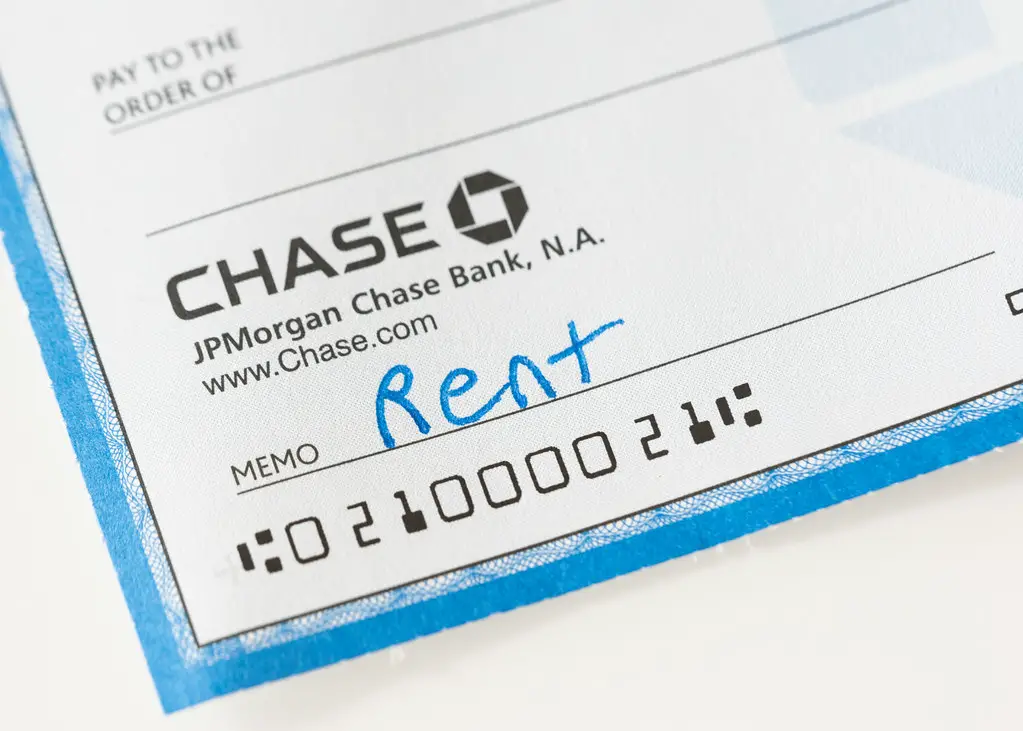![Can You Live in a Hotel? Is It Cheaper? [Costs and Flexibility]](https://hopdes.com/wp-content/uploads/2023/10/can-you-live-in-a-hotel.jpg)
When you’re on the road and exploring new places, a hotel can be your home away from home. With the recent rise in travel, hotels are becoming more and more welcoming every day, and the idea of ditching a home for a hotel isn’t very far-fetched anymore.
Have you ever thought about whether you can live in a hotel forever? Let’s find out everything there is to know about the matter in today’s post.
Read on to find out!
The Practicality of Hotel Living
So, let’s answer this question before we move on to the details. Can you even live in a hotel? The answer is: Yes, it is possible to live in hotels. Living in a hotel is indeed a feasible option, but there are several factors and logistical hurdles to consider before deciding to make a hotel your home.

But just because you can do something doesn’t always mean you should. There are a lot of things that come into consideration before leaping. Let’s examine them:
Logistical Aspects
- Cost: Hotel living can be more expensive than traditional renting or homeownership, especially when you’re staying for a long time. It’s important to consider your budget and financial stability when planning to live in a hotel for a long time.
- Limited Space: Hotel rooms are typically smaller than apartments or houses, which can pose challenges if you have a lot of belongings or require ample living space.
- Lack of Personalization: Hotels usually come fully furnished, which means that you’ll have limited opportunities for personalization and creating a unique living space.
- Continual Packing and Unpacking: If you frequently move between hotels, you’ll need to deal with the logistics of packing and unpacking your belongings regularly, which can get annoying and stressful.
- Amenities: There’s a lot of variation between hotel amenities and services. This has a huge impact on your comfort and peace of mind. Evaluate the amenities provided by the hotel, such as laundry facilities, kitchen access, and internet connectivity, to ensure they meet your daily needs.
Impact on Well-Being
- Stability: Hotel living may lack the stability and sense of permanence that comes with a traditional home, which can cause you to feel displayed and negatively affect your mental well-being.
- Privacy: If you’re a very private person, you might be uncomfortable with lots of human interaction. Consider the level of privacy you need, as hotel living might involve more interactions with staff and other guests.
- Community: Hotels can offer a sense of community, but since guests are always coming and going, it may not be as strong or long-lasting as the bonds formed in residential neighborhoods.
The Ultimate Decision:
- Assess Your Lifestyle: Reflect on your lifestyle, preferences, and priorities. Hotel living can be a viable choice for some but may not suit others, since everybody has their own personal style and taste.
- Financial Planning: Living in a hotel can dent your wallet if you’re not careful enough. Evaluate your financial situation and long-term goals, and ensure that hotel living aligns with your budget and financial stability.
- Trial Period: Consider trying out hotel living on a short-term basis before committing to a long-term arrangement to assess its suitability for your needs.
- Flexibility: Keep in mind that hotel living offers flexibility and freedom but may also come with certain limitations and constraints, like what you can do and who you can bring on the property.
Is It Cheaper to Live in a Hotel than Paying Rent?
Living in a hotel can often be more expensive than paying rent, especially for long-term stays. While hotels provide amenities and utilities included in their rates, these conveniences usually result in higher daily costs compared to traditional rental accommodations.

Additionally, factors like the lack of a full kitchen in many hotel rooms can add extra expenses for dining out. Therefore, while living in a hotel might be a viable short-term or luxury option, it’s often more expensive than renting in the long run.
Legal Aspects of Living in a Hotel
It’s not illegal to live in a hotel. That said, it’s always important to remember that living in a hotel isn’t like staying in your own house or apartment. This is for a number of reasons which we’ll be shedding light on:
Tenant Rights
When you live in a hotel, you don’t benefit from the same tenant rights as you would in an apartment or home. Tenant rights are designed by governments to protect renters from exploitation, discrimination, invasion of privacy, and other problems.
These laws don’t apply to hotels, and so you don’t have a lot of state protection in case things go south.
Guest Status
In a hotel, you always have guest status and aren’t a tenant. You might wonder what this means. Simply put, this distinction means you can’t avail yourself of the legal protections renters have.

Policies and rules vary from hotel to hotel, and laws in different locations can always influence the final terms. Before planning to make a hotel your home, it’s always essential to go through the paperwork and fully understand what you’re signing up for.
Mailing Addresses
Usually, guests aren’t able to use hotels to receive mail or list them as permanent addresses. This means that if you do end up living in a hotel, you’ll have to find another address to receive your mail or opt for a P.O. box nearby.
Length of Stay
Lots of hotels have policies that make it hard for you to live there indefinitely. While some hotels are embracing the shift in traveler attitudes and offering extended stays, policies still vary across brands and locations.
Residency Requirements
Depending on the country or state, you might have to fulfill certain residency requirements before you can start living in a hotel for the long term.

This becomes even more important if you’re a foreigner traveling with a limited visa. Understanding these rules is crucial if you plan to make hotel living a long-term arrangement.
Legal Documentation
Keep copies of your hotel reservation agreements and any correspondence related to your stay. This documentation can be valuable in case of disputes or legal issues.
It’s important to research and understand the legal aspects of hotel living in your specific location, as laws and regulations can vary widely. While hotel living offers flexibility, it also involves adhering to the hotel’s policies and complying with relevant laws to ensure a smooth and legal stay.
Who Are Perfect Candidates for Hotel Living?
Hotels have been famous for providing temporary accommodations to people visiting for a few days from other places, but have you ever thought about who the best candidates for hotel residency are? Here are a few and these can help you decide if you’re the perfect candidate for hotel living.
Expats & Business Travelers
Hotels are a popular choice among expatriates moving to a new country. They usually opt for hotel living during their search for more stable and permanent housing.

The same applies to business professionals who frequently choose hotels during their extended business trips. This is primarily for its convenience and proximity to work-related activities.
Digital Nomads
Digital nomads, who work remotely and frequently travel, often make hotels their residence. It offers a flexible and hassle-free accommodation solution as they move from one destination to another.

Travelers
While most travelers stay in hotels for short durations, some, like long-term tourists or those on extended vacations, might choose to live in a hotel for the duration of their visit.
College Students
College students, especially those studying abroad or moving from other states, often stay in hotels during their initial days, as it takes a while for student accommodation and dorm rooms to get vacated.
People Who Are Moving Houses
Individuals who are in the process of moving from one house to another, or shifting states, may temporarily live in a hotel while they finish the entire moving process. This provides them with a stable place to stay while dealing with the logistics of relocating.

Temporary Workers
Professionals on short-term work assignments in different cities or countries may find hotel living convenient during their assignment period.
Families in Transition
Families in the midst of significant life changes, such as divorce, renovations, or job relocations, may choose hotel living to bridge the gap between homes. People displaced due to emergencies like natural disasters or unforeseen events may temporarily reside in hotels until they can secure stable housing.
Retirees
Retirement is a significant life event that can often bring some changes in one’s lifestyle. Many people find it hard to manage an entire house on their own due to various logistical, practical, and financial reasons. As a result, some retirees might opt for hotel living since it eliminates the responsibilities that come with homeownership and offers a more carefree lifestyle.
Medical Patients
Hotels are also a top choice for people who travel to new places for medical reasons. Patients seeking medical treatments or surgeries far from home often stay in hotels during their treatment and recovery period. This helps them focus more on their recovery and worry less about traveling and home management.

Recommended Read: 7 Best Hotels in West Palm Beach for Couples and Families
Pros & Cons
Before you make the jump and try to live in a hotel, it’s crucial to understand the pros and cons and assess how it aligns with your expectations, requirements, and lifestyle.
The Pros of Living in a Hotel
Support and Care
One of the best things about living in a hotel is that the staff is always there to resolve any issues you might run into. For example, if you lose your key card, you can easily get a new one from the front desk. You can also benefit from perks like 24/7 room service or fitness center access. If anything ever needs fixing, the hotel’s maintenance team takes care of it.
Cleaning
The fact that you don’t have to waste time on cleaning and maintenance makes hotel living very attractive. Housekeeping takes care of all these tasks for you.
Points
This is a great perk for the points-savvy folks out there. Staying with a hotel can help you earn lots of reward points which can be redeemed to enjoy special perks, cashback, and freebies. When done right, this can help you save a lot of money and enjoy many fantastic perks that will make your stay even more pleasant.
Company and New Friends
For the social butterflies out there, there’s no better way to make friends than by living in a hotel. With all the hustle and bustle happening every day, you’re bound to befriend adventurous and like-minded folks who might be staying in the hotel. You might also enjoy being around other guests in common areas, like the dining area, lobby, pool, or co-working spaces.
No Utility Bills
When you stay at a hotel, you don’t have to worry about paying for maintenance or utility bills separately. These elements are all factored into your final cost for the room, so there are no worries about any utility bills that might be pending. Some places might ask for a resort fee, but you won’t have to deal with water, electricity, or other traditional housing utility costs.

Freedom and Flexibility
Living in a hotel means you don’t have a lease or a mortgage keeping you tied to a specific place. You can go wherever you want to go, leave when it suits you, and aren’t locked into any long-term commitments. This is a very convenient option for those folks who just love being on the move, and switch places on a whim.
Tax Exemptions
Certain states have special laws pertaining to hotel guests. Some of these can help you save tax money as well. For instance, Texas exempts guests staying for more than a month from paying hotel occupancy taxes.
The Cons of Living in a Hotel
Rights and Protections
As mentioned above, living in a hotel doesn’t get you any tenant rights. This means that you might not be able to enjoy the same level of privacy and autonomy that you could at your own house. Since the hotel staff is the ultimate authority and owner of the property, you might have to comply with requests you wouldn’t like.
Pricing
Let’s be honest: living in a hotel isn’t exactly cheap. When considering long-term stays in a hotel, it’s important to compare prices across hotels and understand the impact such a move can have on your wallet.
Control and Privacy
Hotel environments are versatile and constantly changing. Guest come and go all the time, which means that you never know how the next neighbor might be. It’s entirely possible to end up with loud and noisy neighbors, which might make your stay unpleasant. Also, you don’t really have much control over how your issues are handled by the hotel, and you’ll be at their mercy when things go wrong and need addressing.

“Hidden” Costs
Hotels are notorious for surprising customers with hidden costs and fees. These can rack up quite the bill once they start accumulating, which can leave you feeling distressed and disappointed. Things like resort fees or taxes can quickly add up and dent your wallet, especially if you aren’t using all the services these additional fees cover.
Also check out: How to check out of a Hotel? The Complete Guide
Final Thoughts
As we’ve learned above, it is indeed possible to live in a hotel, though there are a lot of factors to consider before making your final decision. Financial, legal, and logistical elements hold a lot of weight in this situation and will ultimately help you decide if you want to embrace this way of life. As travel continues to grow and evolve, we’re sure that many more people will start making hotels their new (and maybe forever) home!
Can you live in a Hotel?
In most cases, it’s legal to live in a hotel long-term, but there may be local laws, hotel policies, and residency requirements to consider. Understanding the legal aspects of hotel living in your specific location is crucial.
Hotel living can be more expensive than traditional renting due to daily rates, but it offers convenience and amenities. Costs vary, so it’s essential to compare prices and evaluate how hotel living fits your budget and financial goals.
Hotel residents typically have fewer legal protections and tenant rights than traditional tenants. This means you may have limited privacy and autonomy, and you must comply with hotel policies and staff requests.
Some advantages of hotel living include access to support and care from hotel staff, freedom from cleaning and maintenance tasks, opportunities to earn reward points, social interactions with fellow guests, and the convenience of not dealing with separate utility bills. However, it’s important to weigh these benefits against the potential limitations and costs.






